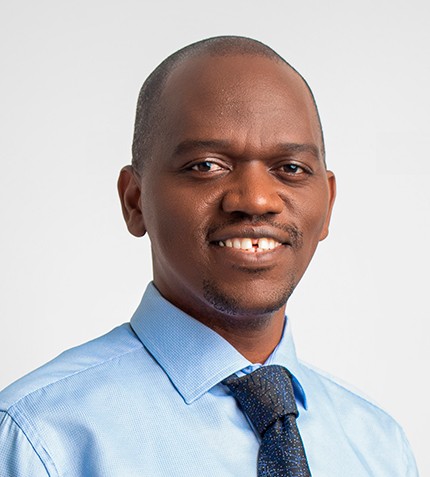
"We are currently exploring opportunities in Namibia, where the growth of the oil and gas sector presents promising prospects."
Share
Can you introduce Angola Environmental Serviços?
Angola Environmental Serviços (AES) was established to cater to the environmental and waste management needs of Angola’s oil and gas sector. AES will be celebrating its 20th anniversary in January 2025. Throughout our history, we have maintained a leadership position in environmental and waste management, providing an integrated service that allows major companies to focus on their core business while we handle auxiliary services associated directly or indirectly with waste management. For the last 20 years, we have been recognized for our capacity to treat drill cuttings using Thermal Desorption Technology. This technology allows for the recovery of the contaminating oil, known as base oil, contributing significantly to the circular economy and environmental sustainability by reducing carbon footprints compared to traditional burning methods. We support industry players in complying with regulations, providing necessary guidance and implementation support.
Have you noticed changes in service demand, especially with growing environmental consciousness?
Over the past few years, there has been a significant transformation within the industry, prompting new challenges that require innovative solutions. In recognition of our efforts, AES was honored with an industry award in 2023 for our sustainability project addressing the challenges in the storage of NORM contaminated equipment by developing a decontamination solution, bringing significant improvement in the related logistical constraints. This solution not only reduces waste volume but also supports recycling initiatives.
How would you assess the environmental regulations in Angola’s oil and gas sector?
Angola’s regulatory landscape has evolved considerably, placing greater emphasis on environmental compliance compared to earlier years. While challenges persist, AES ensures full compliance with international standards and local regulations.
How do you manage workforce challenges in Angola, known for its demand for skilled labor?
AES prides itself on employing an over 95% local workforce, reflecting our dedication to supporting Angola’s economic development and local content goals. Recognizing the technical nature of our operations, we invested significantly in training programs to equip our workforce with the necessary skills and qualifications.
What operational challenges has AES faced in recent years?
Our journey has been marked by initial economic challenges stemming from heavy capital investments in technology and infrastructure without the assurance of the immediate demand for our services. Overcoming these challenges, AES has focused on developing innovative solutions and enhancing local capacity to meet industry demands effectively. For instance, during the Covid pandemic, our robust local workforce and operational resilience ensured uninterrupted service delivery despite global disruptions.
What opportunities do you see for AES within Angola and potentially beyond?
We are currently exploring opportunities in Namibia, where the growth of the oil and gas sector presents promising prospects.
Can you introduce Angola Environmental Serviços?
Angola Environmental Serviços (AES) was established to cater to the environmental and waste management needs of Angola’s oil and gas sector. AES will be celebrating its 20th anniversary in January 2025. Throughout our history, we have maintained a leadership position in environmental and waste management, providing an integrated service that allows major companies to focus on their core business while we handle auxiliary services associated directly or indirectly with waste management. For the last 20 years, we have been recognized for our capacity to treat drill cuttings using Thermal Desorption Technology. This technology allows for the recovery of the contaminating oil, known as base oil, contributing significantly to the circular economy and environmental sustainability by reducing carbon footprints compared to traditional burning methods. We support industry players in complying with regulations, providing necessary guidance and implementation support.
Have you noticed changes in service demand, especially with growing environmental consciousness?
Over the past few years, there has been a significant transformation within the industry, prompting new challenges that require innovative solutions. In recognition of our efforts, AES was honored with an industry award in 2023 for our sustainability project addressing the challenges in the storage of NORM contaminated equipment by developing a decontamination solution, bringing significant improvement in the related logistical constraints. This solution not only reduces waste volume but also supports recycling initiatives.
How would you assess the environmental regulations in Angola’s oil and gas sector?
Angola’s regulatory landscape has evolved considerably, placing greater emphasis on environmental compliance compared to earlier years. While challenges persist, AES ensures full compliance with international standards and local regulations.
How do you manage workforce challenges in Angola, known for its demand for skilled labor?
AES prides itself on employing an over 95% local workforce, reflecting our dedication to supporting Angola’s economic development and local content goals. Recognizing the technical nature of our operations, we invested significantly in training programs to equip our workforce with the necessary skills and qualifications.
What operational challenges has AES faced in recent years?
Our journey has been marked by initial economic challenges stemming from heavy capital investments in technology and infrastructure without the assurance of the immediate demand for our services. Overcoming these challenges, AES has focused on developing innovative solutions and enhancing local capacity to meet industry demands effectively. For instance, during the Covid pandemic, our robust local workforce and operational resilience ensured uninterrupted service delivery despite global disruptions.
What opportunities do you see for AES within Angola and potentially beyond?
We are currently exploring opportunities in Namibia, where the growth of the oil and gas sector presents promising prospects.